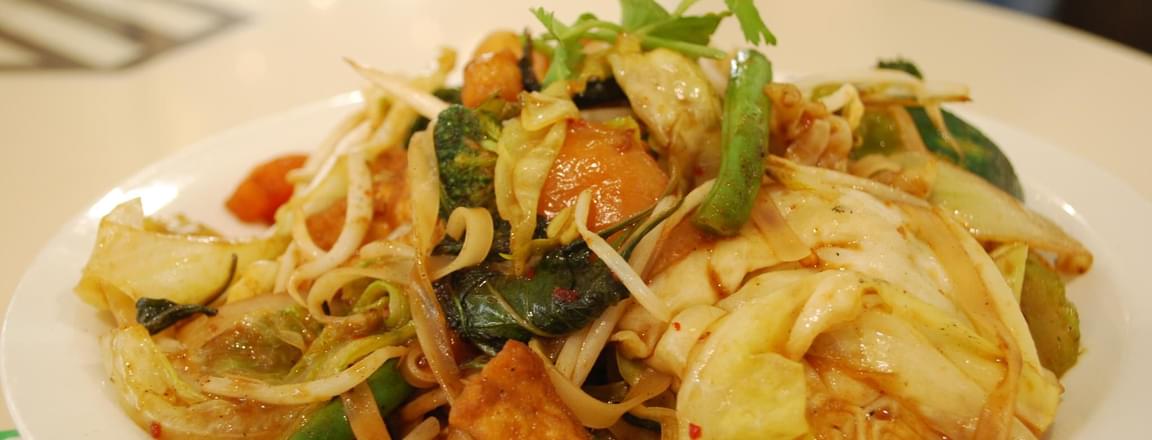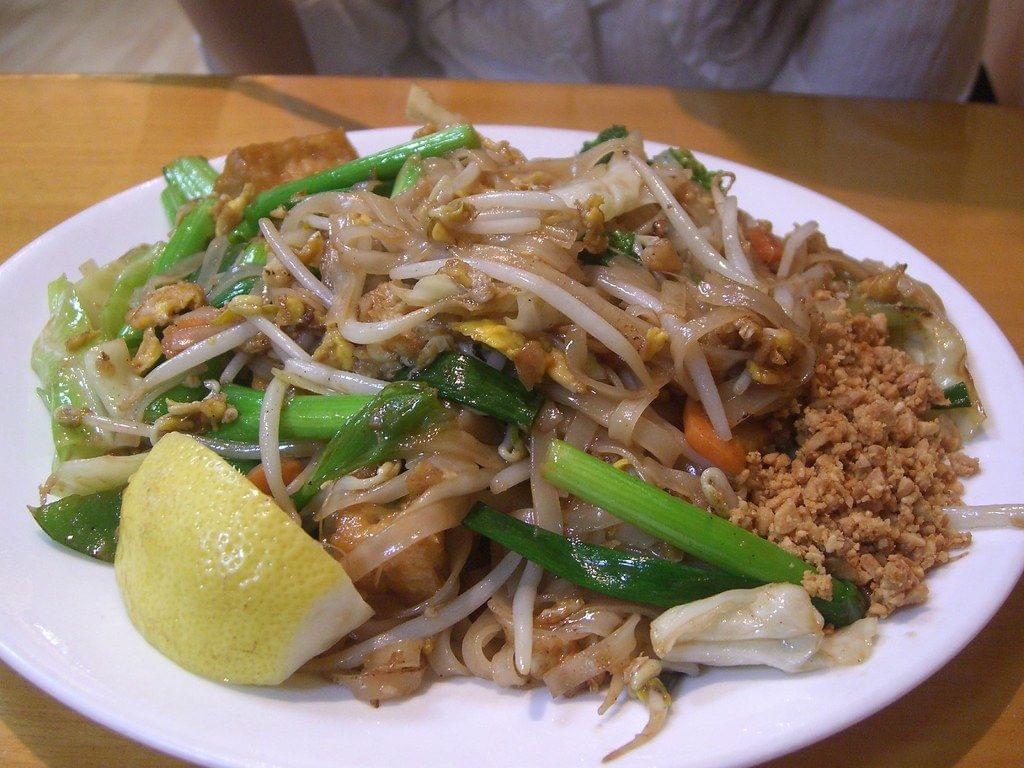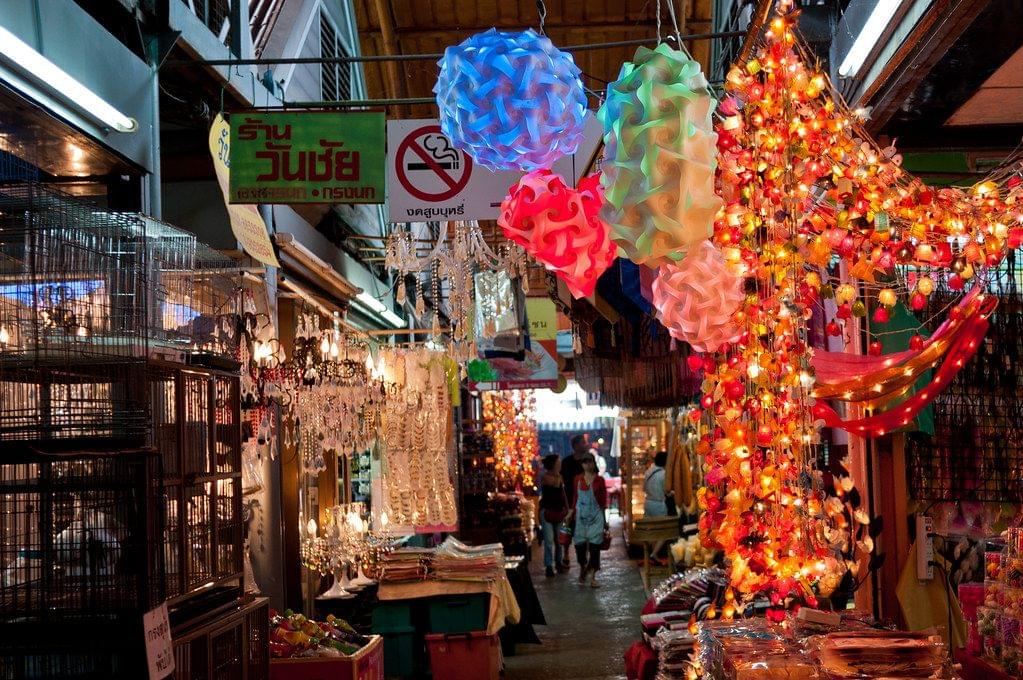
Vegetarian Street Food Thailand : Complete Survival Guide for Indian Travellers

Discovering vegetarian street food in Thailand could be overwhelming for Indian travellers. Plant-based dishes often contain hidden ingredients such as fish sauce, shrimp paste, and oyster sauce. This detailed guide will help you navigate your way through Thai vegetarian foods, and find out the best vegetarian night markets in Bangkok, Chiang Mai, and Phuket. Know how to identify the jay symbol ((เจ)), prevent cross-contamination, and get to enjoy the authentic vegan-friendly Thai street food without having to sacrifice your dietary needs.
Understanding Thai Vegetarian Food: The Jay (เจ) System
What does Jay (เจ) mean? The yellow-and-red (เจ) symbol is used to designate strictly vegetarian food, with none of the animal products, garlic, or onions. This Thai vegetarian certificate is more rigid than normal Indian vegetarian standards.
Key ingredients to avoid:
- Fish sauce (nam pla) - in 80% of dishes
- Shrimp paste (kapi) - in curry pastes
- Dried shrimp (goong haeng) - in salads
- Oyster sauce - in stir-fries
Safe protein substitutes: Tofu (similar to paneer), mushrooms, chickpeas (limited availability), mixed vegetables.
Top Vegetarian Thai Dishes & How to Order Them

Vegetarian Pad Thai: Tips for a Safe Order
This popular Thai dish can be easily modified. Order tofu, not shrimp, no egg (mai sai khai), and soy sauce, not fish sauce. Search the sellers with clear peanut warning signs in case of allergies.
Thai Curry Paste: Avoiding Shrimp Paste & Fish Sauce
Shrimp paste is used in most green curry pasteRed curry, and massaman curry. Always ask: "Mee kapi mai?" (Has shrimp paste?). Pre-prepared jay curry pastes are hugely popular during the Vegetarian Festival (September-October).
Som Tam (Green Papaya Salad) for Vegetarians
The classic green papaya salad is made of fish sauce and dried shrimp. Order without fish sauce, without dried shrimp, not so spicy.
Pro tip: Show vendors the jay symbol (เจ) on your phone. Point while saying "gin jay" for clearer communication and emphasis on vegetarian food.
Best Vegetarian Markets in Thailand: Location Guide

Bangkok Vegetarian Street Food Hubs
Chinatown (Yaowarat) Night Market
Historic Chinese-Thai quarter with abundant tofu dishes, vegetable dumplings, and noodle soups. The Chinese heritage means less fish sauce usage compared to other Bangkok markets. Look for jay symbols and golden-fried tofu skewers.
- Best for: Tofu dishes, Chinese-Thai fusion
- Peak hours: 7 PM–midnight
Chatuchak Weekend Market
Asia's largest market features 50+ vegetarian-friendly stalls in Section 26. Find fresh tropical fruit, coconut ice cream, vegan Thai desserts, and jay-certified curry vendors. Visit early (9-11 AM) to avoid weekend crowds.
- Best for: Fresh fruit, coconut desserts, jay-certified stalls
- Peak hours: Saturday-Sunday, 9 AM–6 PM
Silom Night Market
Compact 400-meter tourist-friendly market with English-speaking vendors and clearly labeled veggie options. Best for quick snacks like grilled corn, fruit shakes, and pad see cooked in dedicated vegetarian woks.
- Best for: Quick vegetarian snacks, grilled corn
- Peak hours: 5 PM–11 PM
Chiang Mai Vegetarian Food Markets
Sunday Walking Street (Tha Pae Gate)
Northern Thailand's premier 1-kilometer street market with 30-40 dedicated vegetarian stalls among 200+ vendors. Famous for vegetarian khao soi with vegetable broth, tofu herb sausages, and coconut rotis. Family-friendly atmosphere with live traditional music.
- Famous for Khao Soi vegetarian options
- Ask for vegetarian broth, tofu, phet noi
- Budget: 50-100 THB
Nimmanhaemin Area
Chiang Mai's hip university district blending street carts with modern cafés. Features plant-based Thai fusion, English menus, smoothie bowls, and air-conditioned seating. Ideal for vegetarians wanting clearly labeled, less adventurous options with credit card acceptance.
- English menus with clear vegetarian labels
- Café culture with plant-based options
Phuket Vegetarian Options
Phuket Old Town Sunday Market (Thalang Road)
Historic Sino-Portuguese quarter featuring southern Thai-Malaysian fusion cuisine. Find coconut-based dishes, banana blossom alternatives, and Indian-influenced roti with curry dips. Vendors here are experienced with vegetarian requests due to Phuket's Vegetarian Festival heritage.
- Hours: Sundays, 4 PM–10 PM
- Budget: 40-80 THB
- Nearby: Jain-friendly restaurants at Patong Beach
Budget Breakdown: Cost of Thai Vegetarian Street Food for Indian Travellers
- Pad Thai (vegetarian) - 40-80THB
- Som Tam (papaya salad) - 30-60THB
- Coconut soup bowl - 50-100THB
- Stir-fried vegetables - 40-70THB
- Mango sticky rice - 60-100THB
- Fresh fruit shake - 30-50THB
Daily food budget: 300-500 THB ($9-$15) for three meals plus snacks.
Conclusion: Mastering Vegetarian Street Food in Thailand
To survive as a vegetarian in Thai street food, one has to know about the list of vegetarian street foods in Thailand. With the most important phrases such as gin jay, mai sai nam pla, and understanding the Jay (เจ) symbol, you will easily explore Chinatown night markets in Bangkok, Sunday walking streets in Chiang Mai or beach stalls in Phuket. The Thai Vegetarian Festival has the highest level of safety, and all-year-long choices are available, as long as you know what to request. Ready to explore more? Customise your next Thailand tour packages with Pickyourtrail for a seamless and memorable experience.
Update your location?



